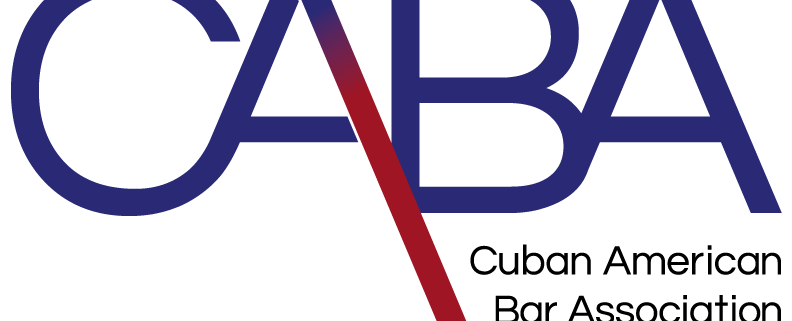A Letter to the International Law Section of The Florida Bar Regarding the ILS Journey to Cuba
July 12, 2018
Via Email: [email protected]
Mr. Arnoldo Benjamin Lacayo
Chair, International Law Section, The Florida Bar
1001 Brickell Bay Dr., Fl. 9
Miami, FL 33131-4937
Re: ILS Journey to Cuba – October 19-22, 2018
Dear Mr. Lacayo:
The Cuban American Bar Association (“CABA”) is aware of the excursion to Cuba organized by the International Law Section (“ILS”) of The Florida Bar for October 2018. After reviewing the itinerary for the trip, many of our members have expressed concerns about the nature of the travel being provided.
Of particular concern is the differential treatment of Cuban-born members of the Florida Bar. The fine print on the promotional materials state that “Cuban born travelers, please contact Cuba Cultural Travel prior to mailing your deposit and registration form. Fees associated with special visas for Cuban born travelers are not included.” When one of our members inquired as to what these additional steps were, he was told that there “are rules the Cuban government has set in place” and therefore, he had to apply for a special permit. The permit application process requires an additional fee and a myriad of information, including a “reference in Cuba (must know exact name and address).” It is outrageous that the Florida Bar would acquiesce to Cuba’s policy which, clearly, remains intent on tightly controlling the nature of any allegedly “open” cultural exchanges between Cubans and Americans, and on prohibiting the type of “tourists” who might inconveniently bring to light Cuba’s deplorable human rights.
Another significant concern is the branding of this excursion as a “cross-cultural educational exchange,” with a glaring absence of any education on the disgraceful human rights issues facing Cubans on the Island. The promotional materials for this excursion claim that ILS “promises” to include high-level discussions regarding . . . human rights.” Yet, the cast of “prominent” members that the ILS has selected to “educate” members of our Bar fails to include even one member of the Cuban dissident movement or one human rights activist.
In order to promote liberty and freedom for the Cuban people––and if the true intent of the excursion is at least in part to educate members of our Bar on Cuba’s human rights––we suggest that the travelers take time to meet with members of the Cuban dissident movement, human rights activists, and others fighting for freedom in Cuba. To that end, we suggest meetings with, among others: the Damas en Blanco (The Ladies in White), a dissident group comprised of the wives and mothers of Cuban political prisoners who march through Havana in protest every Sunday after attending Catholic mass, resulting in their arrest and detention on an almost weekly basis; Antonio Rodiles, head of Estado de SATS (a forum which was created in July 2010 to encourage debate on social, cultural and political issues in Cuba), who organized and submitted a petition to Cuba’s National Assembly demanding that the Cuban Government ratify international covenants on human, civil, and economic rights, and who was savagely beaten by Cuban agents in July of 2015, a few days before the opening of the U.S. embassy in Cuba; Dr. Oscar Elias Biscet, who received a U.S. Presidential Medal of Freedom for his efforts promoting human rights in Cuba; Jorge Garcia Perez Antunez, a former Amnesty International prisoner of conscience and human rights activist; and, Ivan Hernandez Carrillo, a former Amnesty International prisoner of conscience and labor leader.
The ILS should be aware that it is sanctioning a trip to Cuba at a time when the Cuban government is still one of the worst violators of human rights in the world. To that end, I would like to bring to your attention a summary of some of the human rights abuses that occur daily under that regime that should be taken into consideration by the ILS and its excursion participants when contemplating this trip:
- Arbitrary Detentions. The regime continues to rely on arbitrary detention to silence dissenters. Detentions are also used pre-emptively to prevent persons from participating in events viewed as critical of the government. In the ten-month period between January 2017 and October 2017, the Cuban Commission for Human Rights and National Reconciliation received more than 4,500 reports of arbitrary detentions. In April 2017, political activist Eliécer Ávila from the group Somos+ was arrested twice in three days for recording and broadcasting a protest message after authorities confiscated his computer in the Havana airport.2
- Severely Restricted Freedom of Speech. The Cuban government controls virtually all media outlets in Cuba and restricts access to outside information. While a small number of journalist manage to communicate information, the Cuban government blocks access to where that information is published. Then, to the extent the government considers the communications critical of the Cuban government, the journalists are subjected to smear campaigns and arbitrary arrests.
- Imprisonment and Political Prisoners. Persons who criticize the regime are charged with crimes, denied due process, and imprisoned. Judicial independence does not exist as the courts are subordinated to the government. As of May 2017, the Cuban Commission for Human Rights and National Reconciliation reported scores of political prisoners—including 54 members of the group Cuban Patriotic Union (Unión Patriótica de Cuba).3 For instance, Dr. Eduardo Cardet Concepción, leader of the Christian Liberation Movement (Movimiento Cristiano Liberación), was sentenced three years in prison on March 20.4 He was detained on November 2016 after criticizing in interviews with international media former President Fidel Castro shortly after he died.
- Unsanitary and Inhumane Prison Conditions. More than 57,000 Cubans are held in overcrowded prisons or work camps. Prisoners who protest conditions are placed in solitary confinement, subject to beatings, restr5icted from family visits, and denied medical care.5
CABA realizes that there has been a significant change in United States policy toward Cuba over the last few years, despite established facts confirming that the regime is just as totalitarian, just as intolerant, and just as repressive as ever. Therefore, we urge the ILS and its members who choose to visit the island to do so not because they are, in reality, being offered a fun-filled island vacation with rides through the crumbling remains of a once world-class city in vintage American ‘50’s convertibles, but because they want to make a meaningful contribution to the establishment of a freely-elected government that not only respects the rights of its citizens, but is held accountable to them. We ask our colleagues to keep in mind, as they exercise their freedom and right to embark on this journey, that Cuba continues to be a repressive dictatorship and its people are not free, and more particularly, is a country where our brothers and sisters in the law are routinely muzzled and unable to freely practice our beloved profession.
On behalf of CABA, thank you for your consideration in this matter. Should you wish to discuss any of this in greater detail, please feel free to contact me.
Sincerely,

Jorge L. Piedra
President
CC: Michelle Renee Suskauer, President, The Florida Bar
Via Email: [email protected]
CC: John M. Stewart, President-Elect, The Florida Bar
Via Email: [email protected]
1 Human Rights Watch, World Report 2018, https://www.hrw.org/sites/default/files/world_report_download/201801world_report_web.pdf (accessed June 24, 2018)
2 Id.
3 Id.
4 Id.
5. Human Rights Watch, World Report 2014, Cuba http://www.hrw.org/world-report/2014/country-chapters/cuba?page=1 (accessed June 24, 2018).


